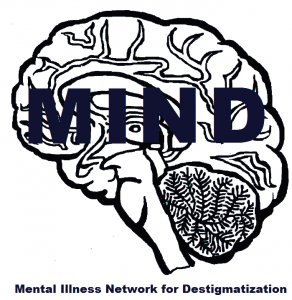UBC’s Mental Illness Network for Destigmatization (MIND)
Mental illness is one of the most neglected diseases globally. In the 2013 Years Lived to Disability study, Major Depressive Disorder (MDD) and Anxiety Disorders were extremely prevalent in the top ten causes of disability globally (available here).
| Location | MDD rank | Anxiety rank |
|---|---|---|
| Developed Countries | 2 | 9 |
| – Canada | 4 | 8 |
| – United States | 2 | 4 |
| Developing Countries | 2 | 9 |
| High Income Countries | 3 | 7 |
| Central Europe, eastern Europe, and central Asia | 2 | not listed |
| Latin America and Caribbean | 2 | 3 |
| Southeast Asia, east Asia, and Oceania | 3 | not listed (Schizophrenia is 7) |
| South Asia | 2 | 9 |
| North Africa and Middle East | 2 | 7 |
| Sub-Saharan Africa | 1 | 9 |
UBC Speaks Up
In recognition of World Suicide Prevention Day, MIND (Mental Illness Network for Destigmatization), formerly MHEII, is excited to introduce a teaser video for UBC Speaks Up. This online video-based initiative aims to inspire hope in those struggling in silence by showing them that they are not alone. The website, launching later this month, will feature videos of UBC faculty, staff and students talking about their experiences with mental health. To get involved, read below.
To learn more about UBC Speaks Up, connect with them on social media:
Facebook: MIND- Mental Illness Network for Destigmatization
Twitter: @ubcmedmind
YouTube Channel: UBC Med MIND
To contact them directly or to share your own story, e-mail us at ubcmedmind@gmail.com.
Your UBC Med MIND team,
Daljeet Mahal (MD ’18)
Connor Hawkins (MD ’18)
Meghan Smith (MD ’18)
Megan Lucey (MD ’18)
Eric Zhao (MD/PhD ’20)
(Photo credit: www.health.uq.edu.au)
